
8 minute read
Next Generation of Scientists
BENJAMIN GARFINKEL, PhD
Postdoctoral Fellow
Advertisement
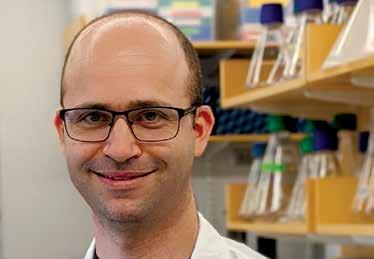
This is a great question. In fact, a scientist was the one thing I knew as a child that I did not want to be when I grew up. My father was a scientist, and I wanted to rebel. However, when the time came to choose a major in school, I somehow found myself naturally pulled into life sciences. My initial exposure to scientific research was as an undergraduate student in the lab of Professor Joseph Orly at the Hebrew University of Jerusalem in Israel, and as is often the case, my original project rapidly evolved into new and exciting directions. By the time I graduated, I was hooked.
The first major hurdle that I encountered on my scientific journey was my father’s diagnosis with pancreatic cancer and his passing a few months later. This occurred during my first year as an undergraduate student, just as I was preparing to start work in a lab. This was a significant blow, as my mother had also died of cancer eight years earlier. I think that this personal close encounter with untreatable illness acted to further solidify my resolve to work in biomedical research. On a more day-to-day level, I believe that a scientist’s career is fraught with challenges simply by virtue of the unpredictable nature of working with experiments. More than once I have found myself having to accept that a hypothesis I was excited about proved to be utterly wrong. However, this means that when I get things right, it’s extra sweet!
Sabri Ülker Center?
I had heard great things about the Hotamışlıgil Lab from colleagues in Israel when I was looking for a top-notch lab doing metabolic research for my postdoc. It was recommended to me as an excellent place to perform cutting-edge research at the interface between metabolism and immunology, a field in which I was interested in developing. I interviewed at a number of leading labs in the Boston area, but thankfully I had no difficulty in choosing. The research being performed in all of these labs was unique and fascinating, but in none of them did I encounter the lab culture that permeated the Hotamışlıgil Lab. Even as a candidate, I felt so welcomed that I wanted to return as soon as possible.
There are many, and they are constantly changing. Throughout my career so far, I’ve allowed myself to be led by my experimental results from question to question. I approach scientific research like a scavenger hunt— each time I solve a riddle, my reward is another riddle, another challenge. This is exhausting, but never boring! At the moment, I am driven by the question of how the pancreas copes with the immense burden of producing large amounts of digestive enzymes every morning when we wake up. Paradoxically, making so much protein can be harmful for the pancreatic cells, and I am trying to elucidate the defense mechanisms utilized by these cells to allow us to continue eating and digesting peacefully.
HATOON BAAZIM, PhD
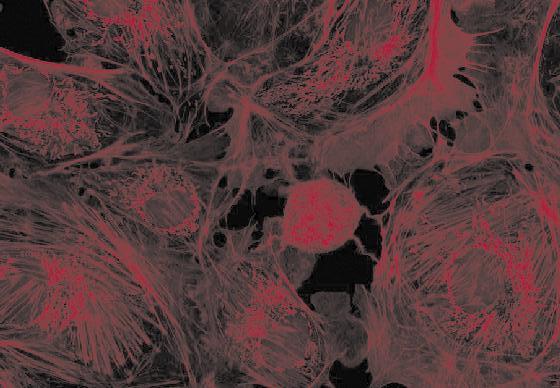
Postdoctoral Fellow
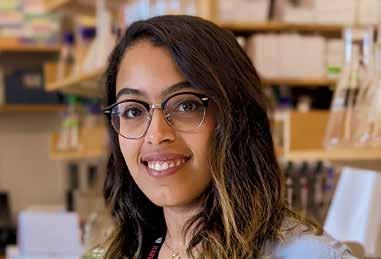
There wasn’t a particular moment of revelation for me. I was an explorative and adventurous child and liked reading and watching documentaries. Over time, biology became the topic that engaged and fascinated me the most, particularly molecular biology. Conceptualizing biology on a molecular level engages an almost abstract level of thinking and it heightened my awareness of the dynamic nature of life. Each cell, each molecule, can seem to take on a life of its own. It really changed the way I think about the world around me.
I was born and raised in Saudi Arabia’s capital, Riyadh, where I did my undergraduate studies in Biochemistry. I then moved to the west coast of Saudi to pursue a master’s degree in Bioscience. For my doctoral studies, I moved to Vienna. There were of course several challenges that I had to overcome to be where I am now, many were cultural. I come from a very well-educated family who’s always supported me. But, it was understandably difficult for them to cope with my choice to leave the family nest on my own as a single woman and live so far away from home. In the end, my family believed in me enough to continue their support, and I try my best to make them proud. Being from a minority, perhaps even a minority within minorities, both at work and in everyday life comes with its own set of challenges. It can be very difficult to not have a community with whom I share a language and a true understanding of my culture with all its nuances. Moreover, there are many misconceptions and prejudices that people have about Arabs and people from the Middle East that can lead to behaviors and comments that can be very alienating or sometimes offensive.
Sabri Ülker Center?
I knew of Dr. Hotamışlıgil as one of the world’s leading figures in immunometabolism. I was very impressed by the scientific rigor of the research done in his lab and the range of experimental approaches and the elegance of how molecular mechanisms were linked to physiology and vice versa. The lab members bring together a very solid and diverse range of expertise and work in a very collaborative manner, creating a wonderful social atmosphere. I was quickly able to connect with many of the lab members on a personal level. I could really not ask for better colleagues.
My research interest focuses on understanding the regulatory principles by which the adipose tissue responds to infection and influences pathophysiology and immune responses. I’m particularly interested in examining infection models in which the adipose tissue undergoes excessive depletion of its energy stores, such as the case during anorexia and cachexia. There are many aspects of the adipose tissue biology that we do not yet understand, making it a very rich ground for exploration, both functionally and architecturally, that I plan to pursue.
THE COMMITMENT TO THE FUTURE OF SCIENCE
As part of our commitment to provide opportunities for young scientists who are early in their careers, the Center brings in research assistants who have completed their bachelor’s degrees and are interested in pursuing additional training that would lead to further education. Dr. Lisa Rickey is an outstanding example of one such research assistant who went on to become a physician.
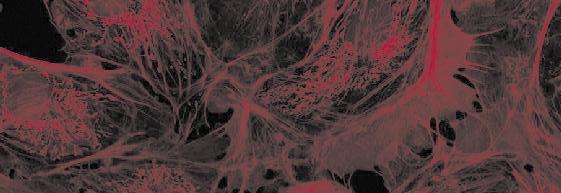
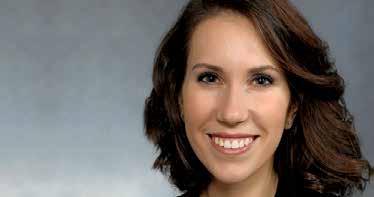
LISA M. RICKEY, MD
Hotamışlıgil Lab Alumna, Currently Hospital Medicine Fellow, Boston Children’s Hospital, Harvard Medical School
My journey to become a physician began at an early age. My love for physiology and the human body was first sparked in a 7th grade biology class when we learned about the circulatory system—such an elegant system design with a complex and dynamic role in the body. Because of this, for a time I thought I would become a cardiac surgeon! Over time my interests expanded to include education and advocacy, and I sought to intervene on health early to (hopefully) alter the trajectory of illness over a lifetime. Altogether, with a natural affinity for our tiniest humans, I found my calling in Pediatrics.
The decision to pursue a career in medicine, although it felt very natural, was not one I made lightly. I often questioned if the path I had set myself on at the age of 11 was the one I truly wanted to follow. In fact, I actively searched for an alternative career that would spark the same excitement in me; I failed miserably. As a woman in medicine, I knew there would be sacrifices that I would be asked and required to make for my career. Fortunately, I have been lucky to have incredible mentors and role models along the way that have helped me to navigate the challenges I have faced during my career thus far.
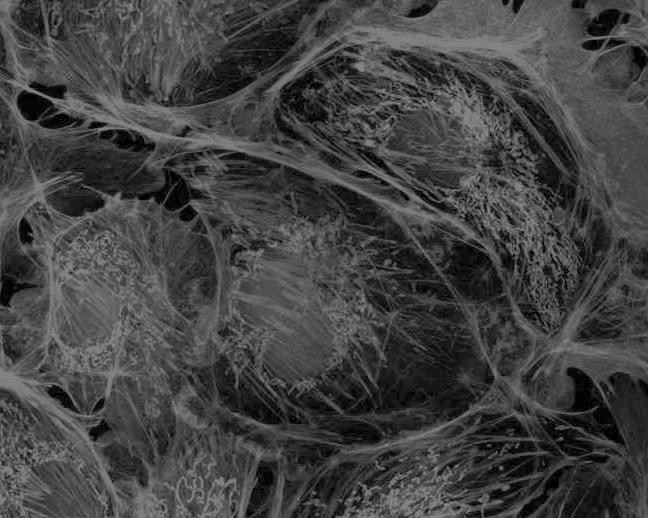
Q. What attracted you to join the Hotamışlıgil
Lab at the Sabri Ülker Center?
I was drawn to the Hotamışlıgil Lab’s mission to explain the disease mechanisms in diabetes, obesity, and metabolic syndrome, which are such significant public health crises. I was especially excited to learn from a group with so many basic as well as clinical scientists who provided a clinical context to our basic science work and did so in such a wonderful collaborative and inclusive atmosphere. As a young research assistant bridging my career into clinical medicine, it was an incredible experience to participate in the translational efforts of the Hotamışlıgil Lab team to search for solutions to these complex and pervasive diseases.
My research interests have now transitioned to a clinical setting where I am focused on quality improvement in patient safety. Specifically, my research focus is to improve early recognition of clinical decompensation in hospitalized children with acute illnesses and to improve our systems for escalation of care in those circumstances.
THE PATHWAY TO SCIENCE
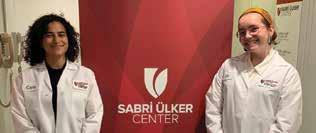
In 2020, two of our research assistants began similar pathways—Carla Julieta Dominguez Gonzalez matriculated at Duke University School of Medicine and Lily Greene at the Geisel School of Medicine at Dartmouth.








